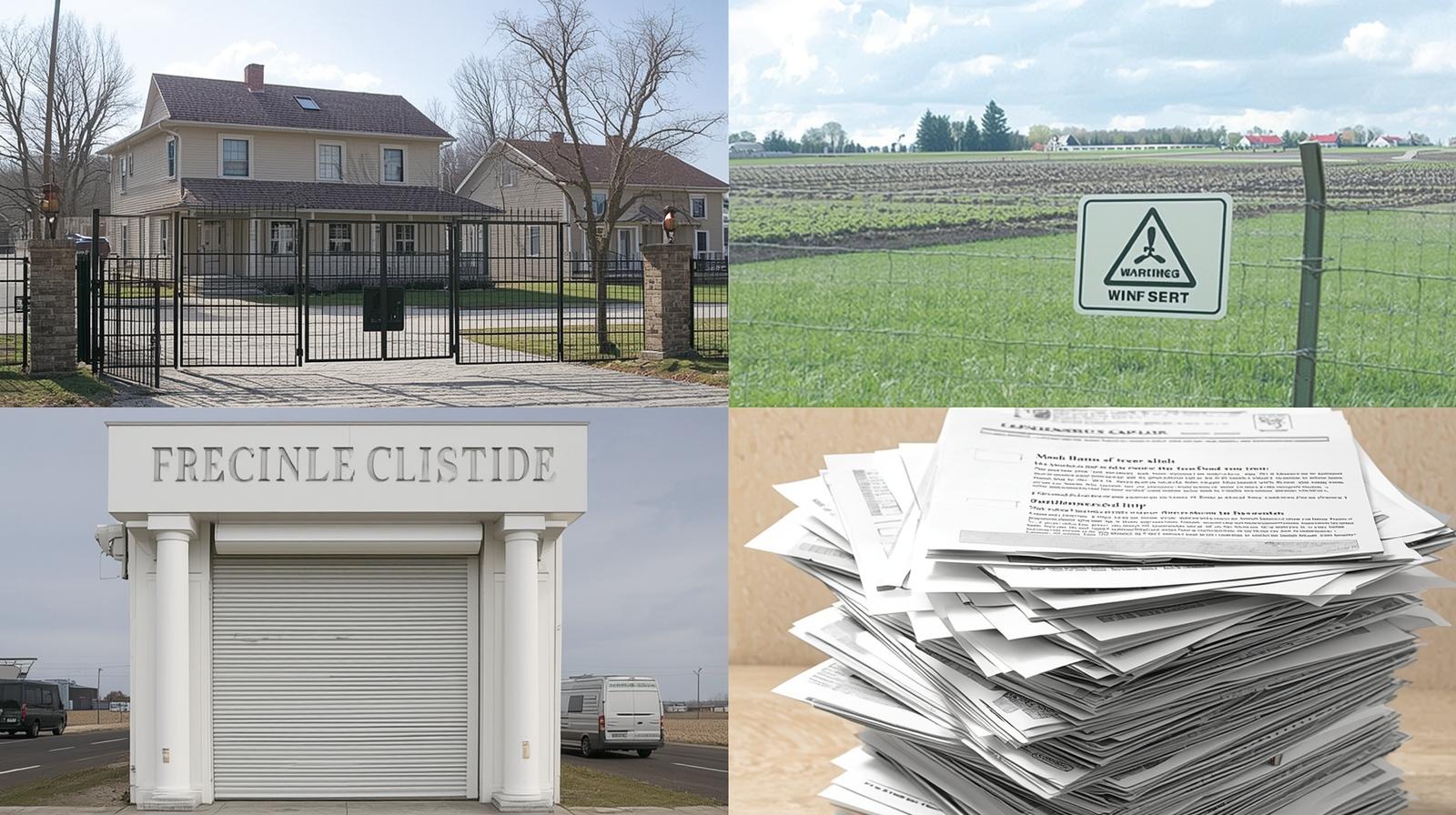Share this article
Confiscated assets and investment risks in Iran remain a pressing concern for foreign nationals, dual citizens, and members of the Iranian diaspora who continue to hold property or business interests in the country. Over the past decades, Article 49 of the Iranian Constitution and related judicial mechanisms have allowed the government to seize property deemed “illegitimate,” often targeting individuals who left Iran after the Revolution or who are considered politically sensitive. For those who inherited land, real estate, or investments in Iran, the possibility of facing confiscation orders can be both financially devastating and legally complex.
Understanding the legal framework of confiscated assets in Iran, the risks for foreign investors, and the safeguards that can mitigate exposure is essential for anyone with property ties to the country.
What Does “Confiscated Assets” Mean in Iran?
Under Article 49 of the Iranian Constitution, the government has the power to seize wealth that is considered acquired through illicit means, such as corruption, exploitation, or ties to the previous regime. The responsibility for pursuing such cases rests with the judiciary, particularly the Revolutionary Courts.
In practice, however, the definition of “illegitimate wealth” has often been broad, leaving room for interpretation. Assets belonging to expatriates, particularly those who left Iran in the early years following 1979, have frequently been subject to seizure, even when the original acquisition was lawful.
Common Types of Confiscated Assets in Iran
- Residential and commercial real estate
- Agricultural landholdings
- Business shares and corporate stakes
- Bank accounts and securities

Investment Risks for Foreign Nationals in Iran
For foreign nationals, particularly those of Iranian origin, property ownership in Iran carries unique risks. These risks arise not only from the confiscation powers under Article 49 but also from the legal restrictions on foreign ownership and the volatile political environment.
Key Risks to Consider
1. Confiscation Orders – Assets can be seized by Revolutionary Courts without the owner present in Iran.
2. Political Sensitivity – Dual nationals or expatriates with political profiles may face heightened scrutiny.
3. Inheritance Issues – Heirs abroad often discover that their inherited properties in Iran are entangled in confiscation cases.
4. Unclear Titles – Many properties lack updated registration, exposing them to competing claims or government seizures.
5. Enforcement Abroad – While Iranian confiscation orders generally lack recognition internationally, they may still complicate cross-border estate planning.
Legal Safeguards for Holding Property in Iran
While risks are real, foreign nationals are not entirely without protection. Strategic legal steps can reduce exposure to confiscation and provide avenues for defense.
1. Proper Title Registration
Ensure that property deeds and ownership documents are registered and updated with the Iranian authorities. Many confiscation cases succeed simply because the property records are outdated or incomplete.
2. Power of Attorney (Mikhak System)
Foreign nationals abroad can issue a power of attorney through Iran’s Mikhak system, enabling trusted counsel or relatives to defend their property rights without returning to Iran. This is particularly important for heirs managing inherited property.
3. Corporate Structures
In some cases, holding property through a registered Iranian company provides a degree of insulation from direct seizure, though this strategy requires professional structuring and oversight.
4. Judicial Remedies
Confiscation orders can be challenged in Iranian courts. While the process is complex and often lengthy, experienced Iranian lawyers can file objections, appeal decisions, and assert ownership rights.

Common Mistakes Foreign Nationals Make
1. Ignoring Notices – Many owners abroad fail to respond to court notices, leading to default judgments.
2. Relying on Informal Agents – Entrusting property matters to unverified relatives or brokers often results in mismanagement or fraud.
3. Assuming Inheritance is Automatic – In Iran, inheritance must be legally formalized, and failing to do so can leave assets vulnerable.
4. Underestimating Time Limits – Procedural deadlines in Iranian courts are strict; delays can forfeit the right to challenge confiscation.
How a Real Estate Lawyer in Iran Can Help
A qualified real estate lawyer in Iran provides critical support for foreign nationals navigating confiscation risks. Services typically include:
- Reviewing ownership documents and identifying vulnerabilities
- Issuing and managing powers of attorney via the Mikhak system
- Filing objections to confiscation orders before the Revolutionary Courts
- Representing heirs in inheritance proceedings
- Advising on corporate structures for property holding
- Liaising with government agencies for registration and compliance
- With professional guidance, many expats have successfully prevented or reversed confiscation actions, protecting valuable family property in Iran.
FAQ: Confiscated Assets and Investment Risks in Iran
1. Can foreign courts enforce Iranian confiscation orders?
Generally, no. Most countries do not automatically recognize Iranian confiscation orders, especially when issued on political grounds.
2. Can I defend my property without returning to Iran?
Yes. Through the Mikhak system and power of attorney, you can appoint a lawyer in Iran to act fully on your behalf.
3. Are inheritance rights safe from confiscation?
Not always. Inherited property is often scrutinized by Iranian courts, and heirs abroad must formalize their claims promptly.
4. What happens if my property was already seized?
You may still challenge the confiscation order in Iranian courts, though success depends on the facts of the case and the timing of the claim.
5. What is the safest way to invest in Iran as a foreign national?
Work with licensed Iranian counsel to structure ownership legally, ensure registration, and put safeguards in place against arbitrary confiscation.
Conclusion
Owning property in Iran as a foreign national offers opportunities but also carries serious risks, especially with the possibility of confiscated assets under Article 49. By understanding the legal framework, avoiding common mistakes, and working with professional counsel, expats and investors can safeguard their rights.
If you or your family have property in Iran and are concerned about confiscation risks, contact a Real Estate lawyer in Iran today for tailored legal advice and representation.
